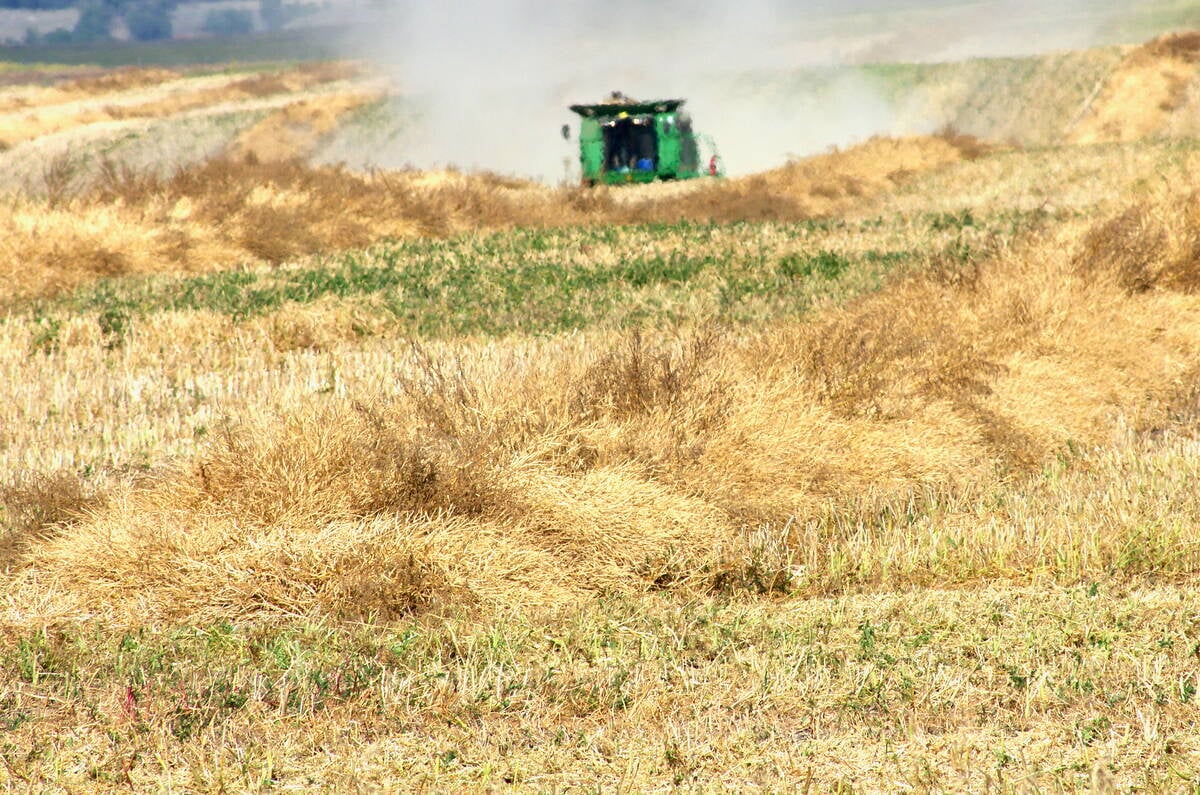The European Union legislation could change trade flows, but it is hard to predict the overall effect on canola demand
SASKATOON — It is unclear what impact the European Union’s looming anti-deforestation regulation will have on canola demand, says an industry official.
The EU’s Regulation on Deforestation-free Products entered into force June 29, 2023.
It stipulates that any business or trader who markets commodities such as cattle, wood, cocoa, soy, palm oil, coffee, rubber and their derived products on the EU market must be able to prove that the products do not originate from recently deforested land.
Read Also

Manitoba searches for Plan B on canola oil exports
A new report explores Manitoba’s current canola oil trade and possible alternative markets to the U.S.
About 10 per cent of the world’s forests have been lost worldwide through deforestation over the last 10 years, according to the European Commission. That is an area larger than the entire EU.
Most businesses have been given 18 months to implement the new rules, or until Dec. 30, 2024. Micro and small enterprises were granted an extra six months to adapt until June 30, 2025.
Some analysts have suggested that the new regulation might be a boon for Canada’s canola growers because it could restrict imports of competing products such as soybeans and palm oil.
Chris Davison, president of the Canola Council of Canada, said that is far from a certainty.
“It would very much depend on what the final form of the legislation takes, how it is implemented and the ability of impacted value chains to meet and comply with whatever those requirements are,” he said in an email.
“While there could be some upside for canola in that EU market, it’s also possible that trade of commodities impacted by this legislation could be directed to other markets where there is less focus on deforestation, affecting canola’s presence elsewhere.”
The bottom line is that the legislation could change trade flows, but it is hard to predict the overall effect on canola demand.
“I would also flag that there are other factors at play too, including some forecasts of reduced global canola/rapeseed production in 2024-25 and demand for canola/rapeseed oil in biofuels production, which in the case of the EU moving forward, we understand also includes discontinuation of crediting certain oil-based biofuels towards greenhouse gas reduction obligations in certain member states,” said Davison.
He noted that there have been some calls to delay implementation of the anti-deforestation law.
That includes the head of environmental policy for the centre-right European People’s Party, who said he is confident the EU executive will agree to a postponement.
“Everybody is aware that we have a problem that cannot be solved without a postponement,” Peter Liese said, according to a Euronews article.
“I would consider two years a reasonable time.”
He cited a letter from senior U.S. trade and agriculture officials warning European Commission vice-president and Green Deal director Maros Sefcovic of “significant economic effects on both producers and consumers on both sides of the Atlantic” when the law kicks in.
Austrian agriculture minister Norbert Totschnig claimed in March that 20 of his EU peers also support delayed implementation of the legislation, according to the Euronews article.
















